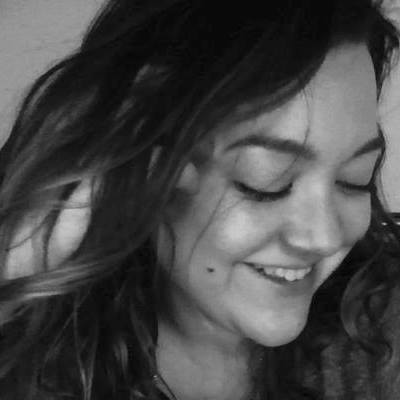 For the past thirty years my grandfather has kept almost every single issue of Golf Magazine he’s received in the mail. A constant source of vexation for my grandmother, these issues fill the shelves of armoires, stand knee-high in his closet, and serve as a veritable fortress surrounding his TV stand. Every now and again, he’ll take one from a pile and peruse images of Jack Nicklaus captured mid-swing, Arnold Palmer lining up a putt, and advertisements selling everything from Big Bertha drivers to golf gloves. Being the stoic and laconic man that he is, my grandfather’s obsession with golf always made sense to me. It was a game he could play alone; a brief time during the week when all he had to contend with was himself and weather conditions. As far as obsessions go, it’s about as harmless as you can get. We’re not exactly talking Sartre’s mescaline-induced chats with crustaceans here- more like Tarantino’s frequent call back to Fruit Brute cereal, or Hirschfield’s habit of hiding his daughter Nina’s name in most of his drawings. There’s a familiarity there- one that evokes some element of order or existential meaning in its preservation of an artifact- in keeping it close and ever-relevant. And despite her aesthetic objections, I think my grandmother recognizes this as well, because not once has she ever asked him to get rid of them.
For the past thirty years my grandfather has kept almost every single issue of Golf Magazine he’s received in the mail. A constant source of vexation for my grandmother, these issues fill the shelves of armoires, stand knee-high in his closet, and serve as a veritable fortress surrounding his TV stand. Every now and again, he’ll take one from a pile and peruse images of Jack Nicklaus captured mid-swing, Arnold Palmer lining up a putt, and advertisements selling everything from Big Bertha drivers to golf gloves. Being the stoic and laconic man that he is, my grandfather’s obsession with golf always made sense to me. It was a game he could play alone; a brief time during the week when all he had to contend with was himself and weather conditions. As far as obsessions go, it’s about as harmless as you can get. We’re not exactly talking Sartre’s mescaline-induced chats with crustaceans here- more like Tarantino’s frequent call back to Fruit Brute cereal, or Hirschfield’s habit of hiding his daughter Nina’s name in most of his drawings. There’s a familiarity there- one that evokes some element of order or existential meaning in its preservation of an artifact- in keeping it close and ever-relevant. And despite her aesthetic objections, I think my grandmother recognizes this as well, because not once has she ever asked him to get rid of them.
As for me, I’m only just beginning to recognize the nature of my own obsessive gestures.
A couple of weeks ago, I revisited Spinoza’s Ethics for the first time since undergrad and came across the passage in which he discusses the mind-body problem by examining the nature of sleepwalkers; how they often wake, surprised at the actions their bodies were able to execute while the mind seemingly took a backseat. As is typically the case, the text elicited a different response this time around. In terms of morality, this conceit provided interesting jumping off points that I had never really explored in my own work, and that led to a bevy of questions, such as: if mind and body are ontologically inseparable, is there any difference between the moral agent who only thinks of committing an immoral act and the agent who actually commits said immoral act through bodily extension? And isn’t imposing an etiological framework onto questions of morality further proof that it can’t be objective, because it relies upon the individual’s subjective conceptions of what constitutes cause and effect? And do we merely perceive something as good only by virtue of its being desired? And doesn’t the notion that a person’s ability to dictate what is genuinely good presuppose the existence of an idealized model human? And, by extension, if mind-independent moral properties don’t exist, then wouldn’t each person’s concept of an idealized model human be constructed in their own image and therefore be inherently fallible? I think you’re starting to see where I’m going with this…
Within three days I had written six poems entitled “Sleepwalker,” in an attempt to deal with the existential aftermath of this curious deluge. At one point, I even expressed concern to a fellow poet and friend, saying that I was worried about devoting too much poetic capital to a singular device for fear that it become gimmicky. But being the ever-supportive and wise friend that she is, she cautioned me against questioning it too much. Just go with it, she said. There’s a reason for the obsession. Since then, I’ve written five more “Sleepwalker” poems. Of course, I’m not so naïve as to believe that one poetic sequence will effectively bring about any sort of resolutions to the questions I have regarding morality, but resolution isn’t necessarily the goal. It’s enough to simply participate the act of recollection and extrapolation; to know that, when the mood strikes, there are artifacts of experience that I can return to again and again, because they represent something foundational to my understanding. At different times I’ve written poems for various reasons. Lately, I’ve been trying to write poems that examine how I know a thing; the calculus behind my knowing it. Because more and more, writing and sharing that writing with others is becoming a way to put my worldview in conversation with theirs; to allow my own subjective experience to be complicated, altered, and influenced through reciprocity.
As artists and writers, it’s not always easy to resist the inclination to impose our own ways of making meaning onto others. Because so much value is put on the unique elements of our individual style, syntax, point of view, and what have you, we tend to want to apply those when considering another’s work. But I do think there is a moment that precedes this reflex; a moment in which we want another’s experience to stand unqualified. Perhaps, that is a bit of an oversimplification. But mostly, in a lot of my daily interactions, I think I often get in my own way; I sometimes default to the notion that another’s perception somehow discredits or calls into question my experience. But there is something that occurs during the initial reading of a poem that actively opposes such qualifications and encourages me to reserve judgment. Coming to a poem is an act of surrender, or if not surrender, it’s at least an act of reception. In this way, I’m often surprised by poems- not just by their direction, scope, ambition, etc. It’s more like I’m startled by the gravitational shift away from egocentricity; how it feels to melt into a poem; how it takes a while to become solid again.
Much of my mental energy as of late has been devoted to a pre-prelim reading list of critical theory texts; so much so that on more than one occasion different friends have joked that I’d be perfectly justified in moving forward with that Bakhtin 4 Eva tattoo I keep threatening to get. I mean, you can only be that person who brings up polyglossia during casual conversation for so long until something needs to be done about it, right? But, truthfully, obsession has its place in art, in writing. And as much as I’ve hesitated to utilize the same subjects, objects, ideas, and figures in my poems, there is something to be said for paying attention to such patterns of cognition, for being aware of the through lines that are inherent to one’s intrinsic, critical thinking. After a somewhat creative drought, it’s been extremely productive to revel in this latest obsession. By not constantly trying to determine the source or validity of it, I’ve come to see it not as intrusive, or as a failure of my singular imagination. Rather, I can accept it as an antecedent to wonder… or as Spinoza might say, a point of origin from which infinite things follow- one I intend to ride all the way to the ground.
